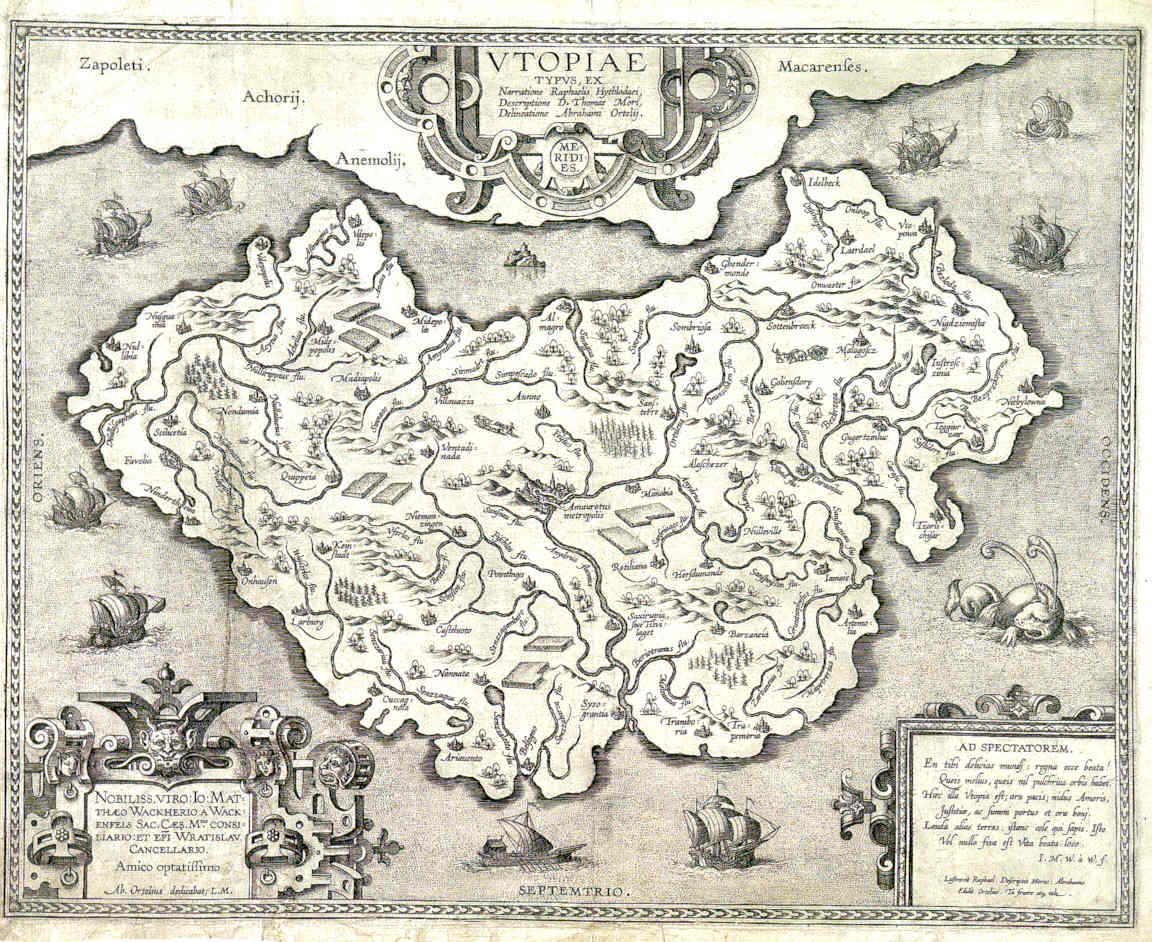Real life in Utopia is never quite like it’s depicted in the brochures.
Thomas More’s original Utopia was based on slavery. Oops. But at least the betrothed could see each other naked… though women also had to confess their sins to their husbands.
Bacon’s New Atlantis features a weird call-out of the “good Jew” Joabin, of the city of Bensalem. Strangely, here the betrothed had to send one of their friends to see the betrothed naked as a stand-in…
Ernest Callenbach’s Ecotopia includes a number of creepy sexual incidents, and proposes basically autonomous ethno-states for minority groups. Umm.
Each of these books gets a number of things very very wrong. Some perhaps intentionally so, to drive a particular point or theme home. Most though, the greater social-political context has changed irrevocably. Thus, making things which once seemed progressive and liberal in an impossibly restrictive regime of the time period, now seem just impossibly weird and wrong.
Why read utopias then? Why engage in this specific type of idiotic fantasy behavior? If we know so much of it to be baloney?
It’s cliche to say utopia & dystopia are two sides of the same coin. But it’s not even just that. It’s that it’s both extremes at once. You can’t always/often tell when an author was saying something satirically as commentary, or actually thought that. It’s hard to decode the thinking of writers sometimes, and sometimes it doesn’t matter. It’s the impact that matters.
I posted something recently on my Subreddit that related to Huxley’s book, The Island (which I haven’t read yet), and someone took the liberty to highlight a few of the bad things that the story included, and then to declare (paraphrasing) that “Yeah, but you know Huxley was actually into that shit.”
I submit that it’s not that simple, and the skein of Utopias is infinitely more tangled than these kinds of simplistic interpretations. I’m reminded of an excellent passage in a recent Slate article about the utopian community of Auroville in India, and some tragic events that unfolded there.
It’s very easy to say, “Oh, come on. All these promises made, all these ideals, and it’s just a morass of humanity that just has not lived up to it in any ways…”
On the other hand, you can also look at these places and say, “Look at what they have achieved and look at what they have tried.” You could ask yourself, “Well, if a community sets itself lofty goals, and, let’s say, it achieves only 30 percent or even 40 percent of those goals, do we denigrate them for the 60 percent that they failed? Or do we praise them and admire them for the 30 percent they’ve achieved?”
Really, when it comes to the non-fictional attempts at instantiating a utopia, it depends what those 60% failures consist of. Does it involve needless human suffering and tragedy, and the abrogation of rights? If so, then we might do well to condemn it in the strongest of terms.
When it comes to books though, I propose that one viable approach could also be that we just “take a chill pill” and not get so bent out of shape about works of fiction, which reflected mores of the times they arose in and which have since moved on. It might be that the conflict between the good, the bad, the universal and specific, the ideal and the rea,l is exactly what drives this genre, and its entire utility in the first place.
Going back to that Grist piece for a second, there’s one other tangent of criticism in it that characters in Ecotopia “…display an eerie sameness that makes all human interaction in the book seem unsettlingly artificial…” If this were another genre apart from a traveler’s tale of a voyage to a Utopia – a tried and true format – then I would have more sympathy for that kind of critique (though, honestly, I have very little sympathy for most critiques – the ones I dish out especially).
As it stands though, one of the things I actually heartily enjoy about utopian fiction and utopian satires is specifically that the narrative and the characters are so so very thin. They are, in essence, lorecore. They are 98% exposition. They read like textbooks. The dramatic elements are so so. The drama instead is in the notion that this *could be* a real place – if we decided to make it so. That is, if we just re-jigger parts of our society and our world, we could have something not unlike the experiments described in this genre of books. They might turn out to be “true” utopias, or true dystopias, but they would at the very least be a try at something new, different, and perhaps unique. And that possibility is something worth preserving and exploring. In the process, it just might be possible we use that same faculty of dreaming and actualization to change the world.



